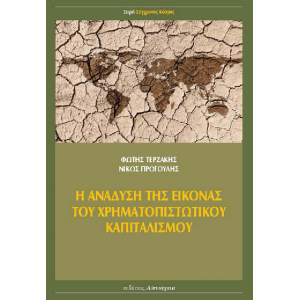Το τέταρτο κεφάλαιο από το βιβλίο της Eve Kossowski Sedgwick, Touching Feeling (2003), αποτελεί μέρος της έρευνάς της για πιθανά εργαλεία και τεχνικές σκέψης, δράσης και παιδαγωγικής που να αποφεύγουν τον δυϊσμό. Στο συγκεκριμένο κείμενο, Η Sedgwick υποστηρίζει ότι η σύγχρονη κριτική εμφορείται από μια ερμηνευτική της καχυποψίας, που ταυτίζεται πλέον με μια παρανοϊκή θεώρηση του κόσμου: «στα χέρια των στοχαστών μετά τον Φρόιντ, η παράνοια έχει πλέον ξεκάθαρα μετατραπεί από διάγνωση σε συνταγή. Σε έναν κόσμο που δεν χρειάζεται να είναι κανείς παρανοϊκός για να ανακαλύψει στοιχεία συστημικής καταπίεσης, οποιαδήποτε θεωρία εκκινεί από μια μη παρανοϊκή κριτική θέση, έχει καταλήξει να θεωρείται απλοϊκή, υποκριτική ή υποταγμένη. Δεν επιθυμώ να επαναφέρω τη χρήση του «παρανοϊκού» ως ένδειξη παθολογίας. Μου φαίνεται όμως μεγάλη απώλεια να θεωρείται η παρανοϊκή έρευνα ως συνεκτεινόμενη με την κριτική θεωρητική έρευνα, αντί να θεωρείται ως απλώς ένα είδος γνωσιακής/θυμικής θεωρητικής πρακτικής ανάμεσα σε άλλα, εναλλακτικά είδη.»
Το προϊόν “Το καθαριστήριο” έχει προστεθεί στο καλάθι σας. Καλάθι
4.00€
Παρανοική και επανορθωτική ανάγνωση
Κάνετε την πρώτη αξιολόγηση για το προϊόν: “Παρανοική και επανορθωτική ανάγνωση” Ακύρωση απάντησης
Γνωρίστε τον/τη Συγγραφέα
Δεν βρέθηκε κανένα προϊόν που να ταιριάζει με την επιλογή σας.























Αξιολογήσεις
Δεν υπάρχει καμία αξιολόγηση ακόμη.